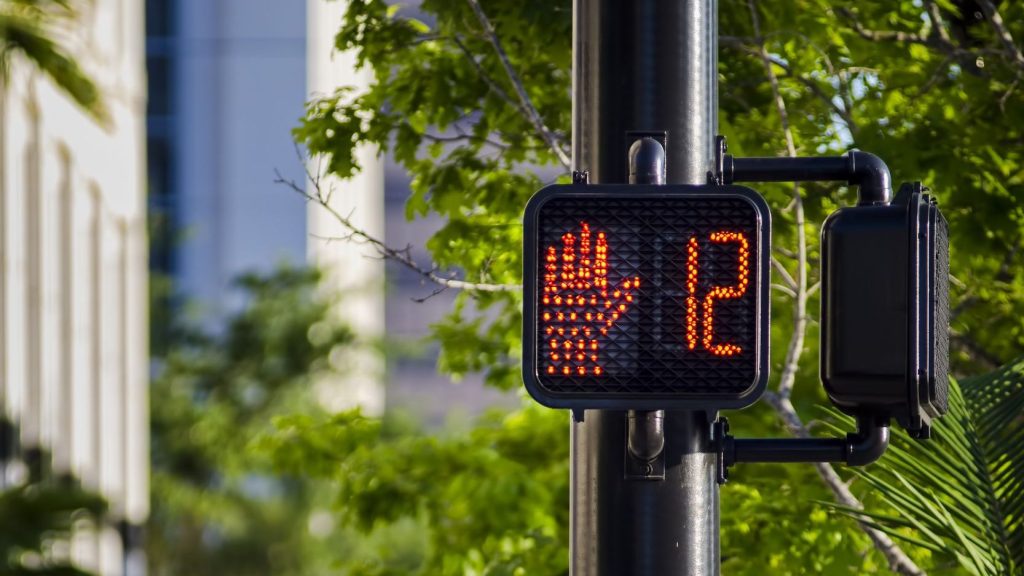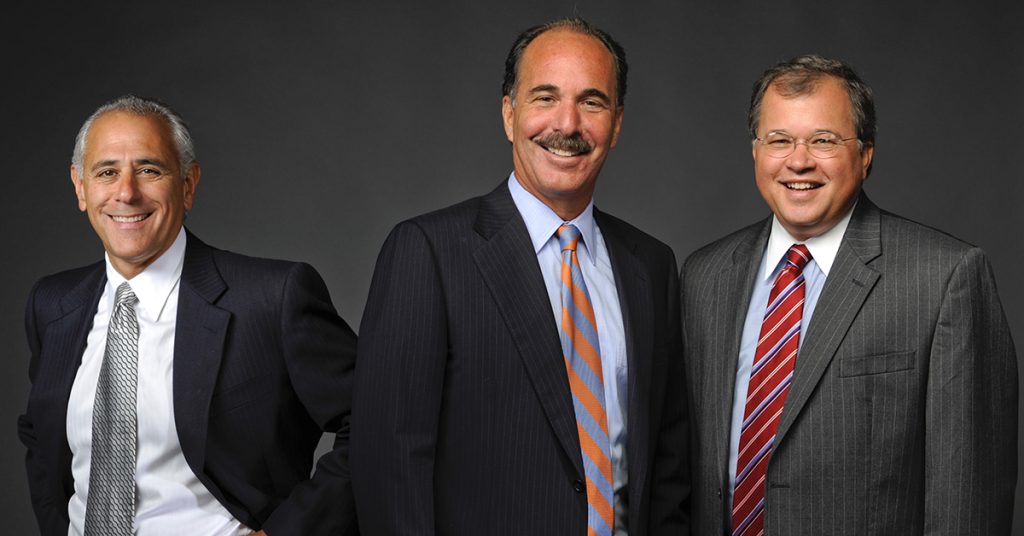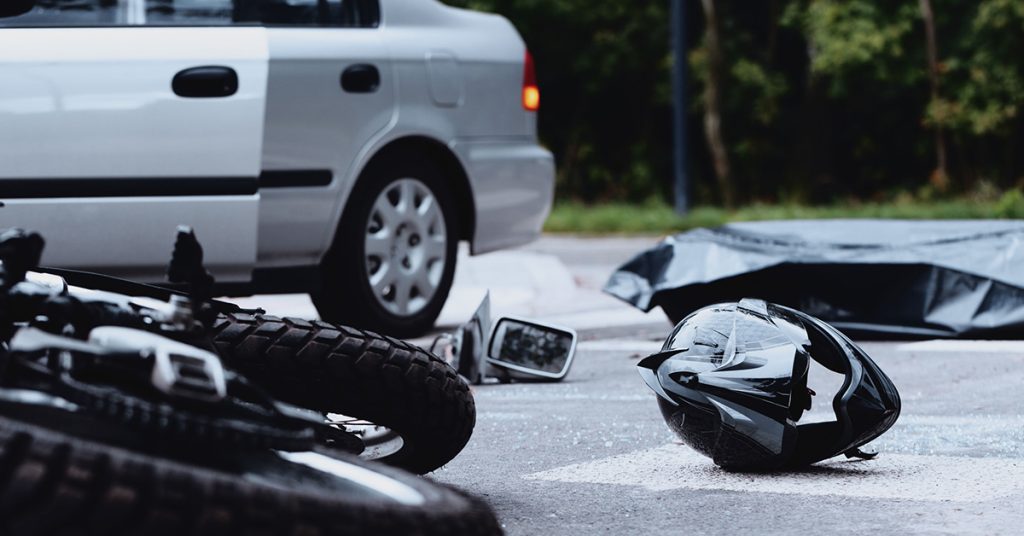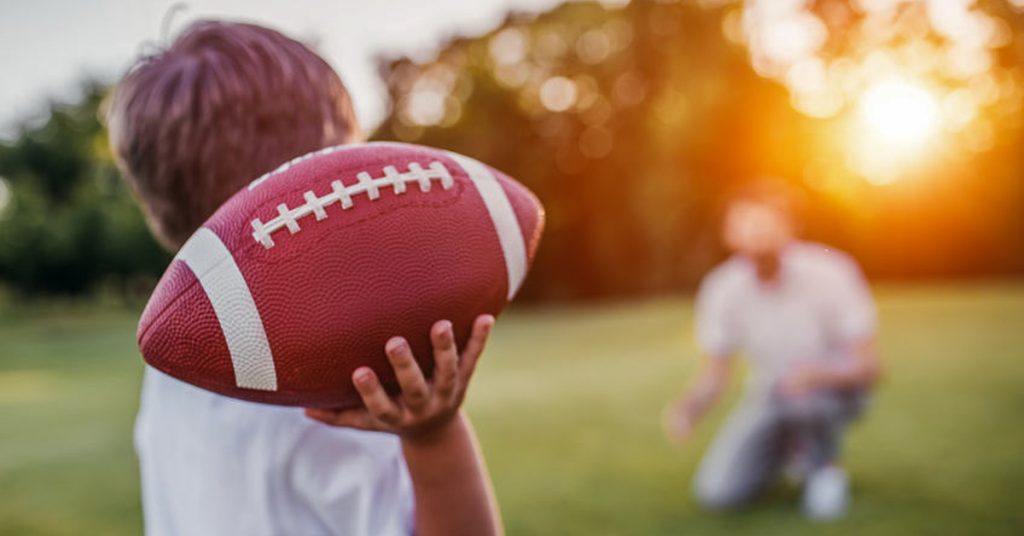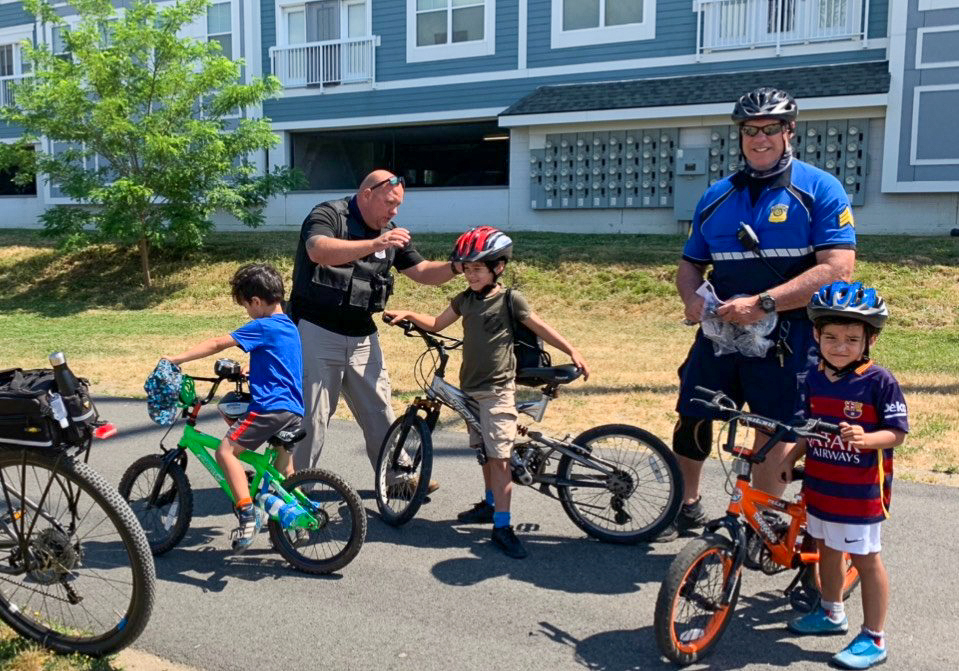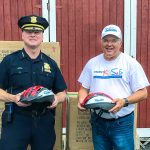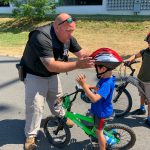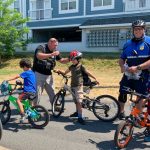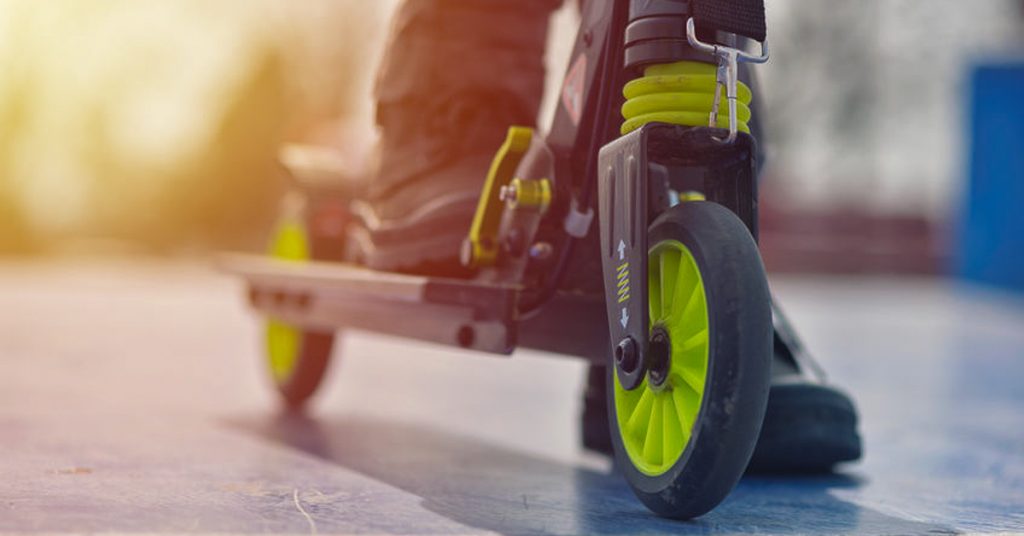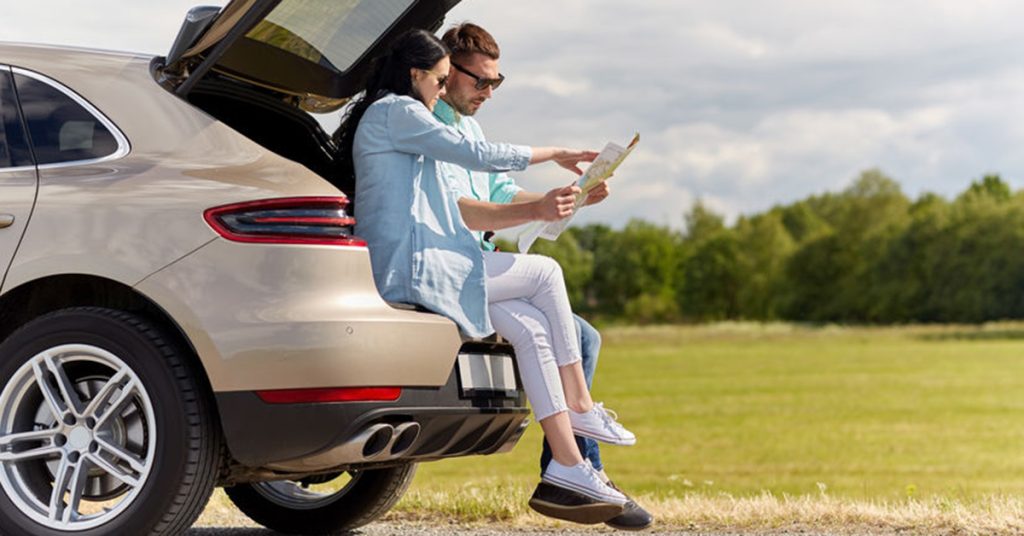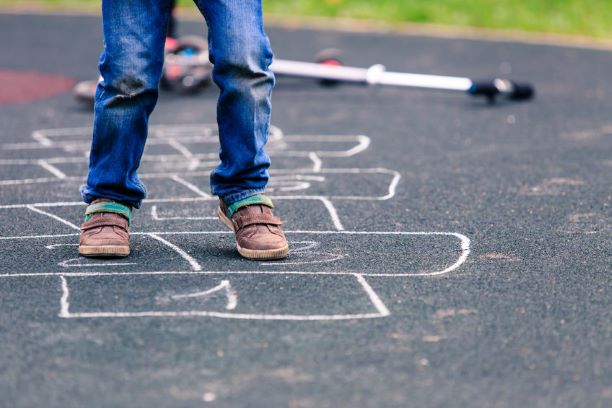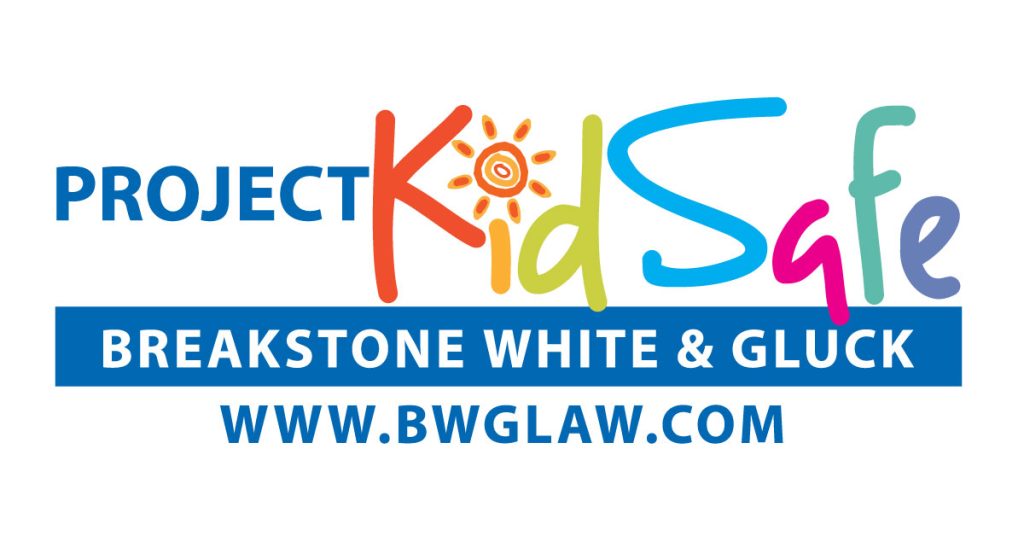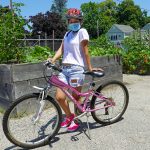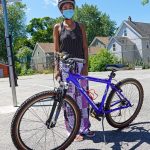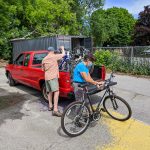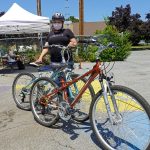Posts by Breakstone, White & Gluck
Now, a Focus on Pedestrian Safety in Massachusetts
After an extended leave, many Massachusetts families are now getting ready for back to school and a return to the workplace – at least part time to start. If you are going back and plan to commute on foot, we have some safety tips to share.
First, walking has so many benefits, including fresh air and exercise. We hope you can relax and enjoy this time and decompress. Transitioning back to work and school will be a challenge at times.
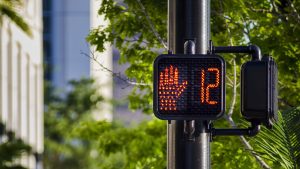
As Massachusetts transitions back to work and school, more people will be walking. Our tips to help pedestrian commuters stay safe.
But still, it is important to remember the risk for pedestrian accidents and observe traffic conditions as you walk. If you normally drive or use public transportation, your commute will be much different on foot.
Before COVID-19, pedestrian accidents accounted 20 percent of all traffic fatalities in Massachusetts, according to the National Highway Traffic Safety Administration (NHTSA). Each year, as students head back to school, there is a lot of talk about pedestrian safety. This year, attention to safety is even more critical because traffic will be unpredictable for a while. You can also expect more pedestrians as well.
Drivers, especially truck drivers and bus drivers, must be vigilant in watching out for pedestrians and cyclists. But pedestrians should also be vigilant and take precautions.
Our pedestrian safety tips:
Be Visible. Dress to stand out to traffic. Think bright – a vest, jacket, shirt or baseball cap with neon-reflective material. You do not have to spend a lot of money. You can find neon-reflective on all types of products in all price ranges.
If you are a parent, encourage your children to wear bright colors. Remember, your child’s backpack doesn’t just carry books; you can purchase one with neon-reflective material and make it a tool for safety.
Use Sidewalks and Crosswalks. Always look for sidewalks and walk on them. If there are no sidewalks, walk as far as you can left, facing traffic. Use crosswalks with pedestrian traffic signals.
Learn Your Route. Take some time to plan a good route for yourself or your children. You can use online map tools, but try to memorize your path – and a backup route. Locate pedestrian crosswalks and traffic signals. Wait for the walk signal before crossing. Look for streets which have fewer lanes of traffic to walk across. Also watch for bike lanes.
Remember School Safety. School bus drivers are responsible for getting children to and from school safely. This is the most critical commute on Massachusetts roads.
Whether you are a parent, driver or pedestrian, you can support school bus safety. When a school bus flashes its yellow lights, it is slowing down. When it stops, extends its arm and flashes red, the bus has stopped to allow children to cross. Drivers must stay 100 feet back.
As a pedestrian, you may keep walking if you are on the sidewalk and don’t interfere with the school bus. But there are times when you should stop if you are walking on the road. Allow the school bus driver to safely stop so children can board safely. Also allow vehicle to safely depart.
Watch for Large Trucks. We urge pedestrians to keep your distance from trucks. Each year, truck crashes injure and kill pedestrians in Massachusetts. The larger the truck, the greater the blindspot and the greater the risk to you.
Trucks can strike pedestrians head-on, but they can also hit them from behind or from the side. Pedestrians can be swept under a truck and dragged. This can happen when pedestrians are walking alongside the road or as they wait to cross a road and a truck approaches.
Because large trucks are everywhere in the Boston area, your best defense is to watch for them, stay on sidewalks as much as possible and find crosswalks with pedestrian safety signals. Truck drivers may not always check for pedestrians. They are more likely to tune into traffic signals in front of them.
Remember, trucks can also be deadly to cyclists. Right hook accidents occur when a driver fails to give a cyclist enough room when turning right at an intersection. What you can do to prevent a serious bicycle accident: Stay on the sidewalk as much as possible. Leave the bike lanes and outer traffic lanes to bicyclists so they have room to adjust to traffic conditions.
Check for Traffic Updates. Before leaving for work or school, check local traffic updates and police department websites. After the COVID-19 closures, some Boston area communities have made changes to accommodate more pedestrians or allowed restaurants to set up outdoor dining in streets and sidewalks. This may impact your commute to work or school. Again, this is another reason to tuck a lightweight neon vest in your bag. Be visible so drivers have a warning that they should stop for you.
Stop and Report Pedestrian Accidents: If you are negligent and hit a driver, you have a responsibility under Massachusetts law to stop and report the crash to police. As stressful as this situation may be, you have to stop, call 911 and make sure the person receives immediate medical attention.
But often, other pedestrians and other drivers witness pedestrian accidents. Stop and report the crash to 911, even if you were not involved. Never assume another witness will. About 1 in 5 pedestrian crashes involve hit and run drivers, according to AAA research. In these cases, pedestrian accident victims are left without access to the driver and their auto insurance policy, which should provide compensation for their medical bills and other financial losses.
About Breakstone, White & Gluck – Boston Personal Injury Lawyers
With more than 100 years combined experience, Breakstone, White & Gluck specializes in representing those injured by negligent and reckless driving in Boston, Cambridge, Quincy and across Massachusetts. Our attorneys are highly experienced in advocating for victims and families after pedestrian accidents and crosswalk crashes. We have secured compensation from negligent drivers as well as major bus operators, such as the MBTA. If you have been injured, learn your legal rights. For a free consultation, contact Breakstone, White & Gluck at 800-379-1244 or 617-723-7676 or use our contact form.
Read about some of our awards:
$7.1 Million – Verdict for pedestrian seriously injured in MBTA bus accident
Our attorneys secured a $7.1 million verdict for our client who was hit by an MBTA bus in a South Boston crosswalk.
$2.15 Million – Settlement for pedestrian injured by crash at strip mall
Our attorneys negotiated a $2.15 million settlement after our client was struck by a vehicle as he left a strip mall.
$1.375 Million – Settlement for pedestrian struck by speeding MBTA bus
Our attorneys reached a $1.375 million settlement after our client was struck by an MBTA bus in Roxbury and suffered a traumatic brain injury.
$1.25 Million – Wrongful death settlement for pedestrian hit in crosswalk
Our attorneys negotiated a $1.25 million settlement for family members of a pedestrian struck and killed in a crosswalk.
Breakstone, White & Gluck Recognized in 2021 Best Lawyers in America and Best Lawyers: One to Watch Rankings
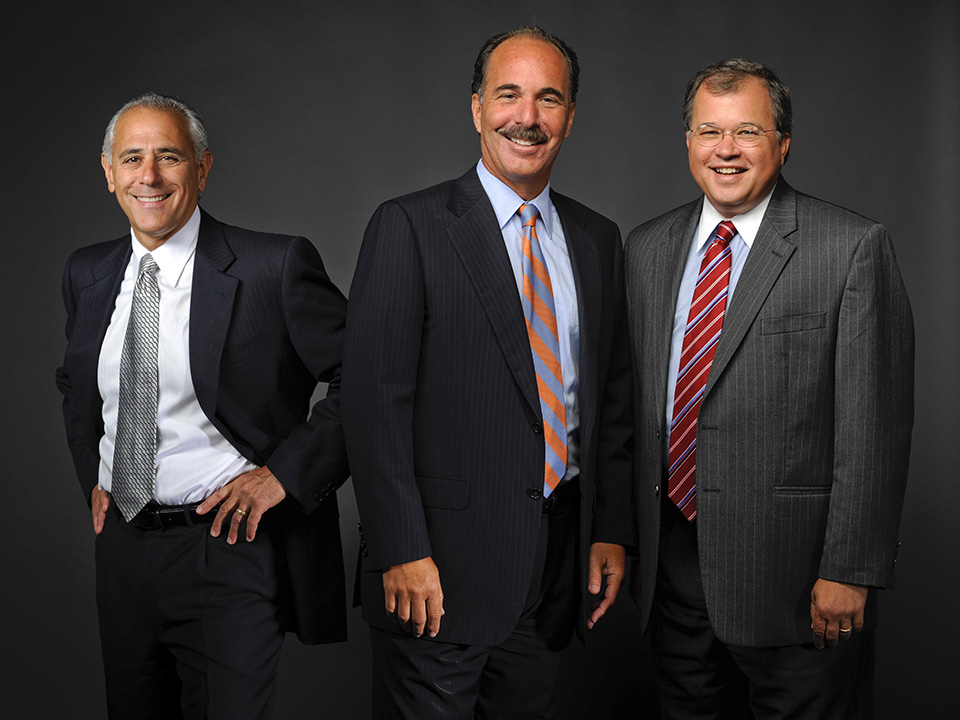
Ronald E. Gluck, Marc L. Breakstone and David W. White of Breakstone, White & Gluck
Breakstone, White & Gluck is pleased to announce our four attorneys have been recognized in the 2021 Best Lawyers in America© and Best Lawyers: Ones to Watch rankings. The rankings were publicly released today.
Marc L. Breakstone, David W. White and Ronald E. Gluck have been recognized in the 27th Edition of The Best Lawyers in America©. Reza Breakstone was selected to the Inaugural Edition of Best Lawyers: Ones to Watch.
Best Lawyers is the oldest and most respected attorney ranking service in the world, releasing rankings in partnership with U.S. News & World Report and other media partners.
This is the 11th year Breakstone, White & Gluck has been selected to the rankings. This year, our attorneys were recognized for their expertise and abilities in the areas of personal injury law, medical malpractice law, professional malpractice and insurance law. Best Lawyers in America© compiles the rankings to help consumers find lawyers with strong professional abilities and expertise in different specialties. The selections are relevant because they are made annually through an exhaustive peer-review process. Attorneys in the Boston area are recognized based on feedback from other lawyers in the region who have knowledge of their work.
Marc L. Breakstone
Read about our four attorneys:
Marc L. Breakstone
David W. White
Ronald E. Gluck
Reza Breakstone
Attorney Marc L. Breakstone
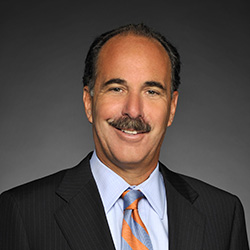
Marc L. Breakstone
Attorney Marc L. Breakstone has practiced law in Boston for more than 30 years and has earned a reputation as one of the top medical malpractice and personal injury lawyers in Massachusetts and New England. He has been recognized in the Best Lawyers rankings in the practice area of medical malpractice – plaintiff representation, personal injury litigation – plaintiff representation and professional malpractice – plaintiff representation. David W. WhiteAttorney Breakstone also has the distinction of being selected to the Top 100 Massachusetts and New England Super Lawyers lists. Attorney Breakstone is a member of the Massachusetts Bar Association and the Board of Governors of the Massachusetts Academy of Trial Attorneys. Read more about Marc.
Attorney David W. White
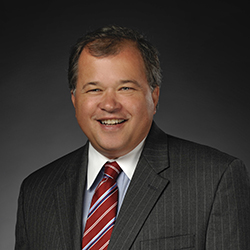
David W. White
Attorney David W. White represents victims of personal injury and insurance bad faith, and is one of Boston’s most respected legal advocates. He has practiced for more than 30 years in the Boston area. He was recognized by Best Lawyers in the practice areas of personal injury litigation – plaintiff representation, medical malpractice litigation – plaintiff and insurance law. Ronald E. GluckHe is a past president of the Massachusetts Bar Association and has been consistently recognized for his results for clients, including on the Top 100 Massachusetts and New England Super Lawyers lists. Read more about David.
Attorney Ronald E. Gluck
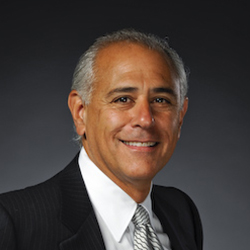
Ronald E. Gluck
Attorney Ronald E. Gluck has practiced for more than 35 years and has obtained multi-million awards for individuals who have suffered catastrophic injuries and damages from acts of negligence. He has been consistently recognized by both Best Lawyers and Super Lawyers for his experience and results in personal injury cases. This year, he was recognized by Best Lawyers in the practice area of personal injury litigation – plaintiff representation. Attorney Gluck is a member of the Massachusetts Bar Association and the Massachusetts Academy of Trial Attorneys, where he serves on the Board of Governors. Ron is a Cum Laude graduate of Boston College (B.A. 1977) and of the Case Western Reserve University School of Law (J.D., 1980). Reza BreakstoneRead more about Ron.
Reza Breakstone

Reza Breakstone
Attorney Reza Breakstone was selected to the Inaugural Edition of Best Lawyers: Ones to Watch in the specialty of medical malpractice law – plaintiff representation. He has practiced with Breakstone, White & Gluck since 2015 and has earned a reputation as a tough and tenacious personal injury lawyer.
Best Lawyers has long published annual rankings to help consumers find lawyers with strong professional abilities. Ones to Watch was introduced to recognize professional excellence among lawyers who are earlier into their careers.
Reza, a graduate of Northeastern University School of Law, is a member of the Massachusetts Bar Association and the Massachusetts Academy of Trial Attorneys. He has also been recognized as a top-rated Boston personal injury lawyer by Super Lawyers Rising Stars. Read more about Reza.
Free Legal Consultation – Boston Personal Injury Attorneys
Breakstone, White & Gluck is committed to providing our clients with aggressive representation and superb results in recovering financial compensation from those responsible for their injuries or the loss of a loved one.
With 100+ years combined experience, our attorneys have won record-setting verdicts and settlements in negligence, product liability and medical malpractice cases in Massachusetts. We have been consistently recognized by U.S. News Best Law Firms, Best Lawyers in America and Best Lawyers: Ones to Watch.
Breakstone, White & Gluck specializes in all areas of personal injury law, representing those injured by negligence in car accidents, truck crashes, pedestrian accidents, bicycle accidents and bus accidents. We also have expertise in premises liability accidents, dog bites and animal attacks, construction accidents, product liability, medical malpractice and catastrophic injuries, such as spinal cord injuries and traumatic brain injuries.
If you have been injured by someone’s negligence, learn your legal rights. For a free legal consultation, contact Breakstone, White & Gluck at 1-800-379-1244 or 1-617-723-7676. You can also use our contact form.
As Riders Return, a High Number of Motorcycle Accidents and Fatalities in Massachusetts
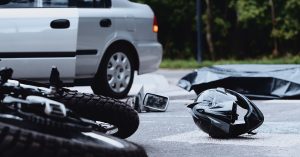
Massachusetts has seen a number of motorcycle accidents, as riders and other drivers return to the road after COVID-19.
Five months from the outset of COVID-19, many motorcyclists are just getting back on Massachusetts roads. Yet already, we have seen several serious and fatal motorcycle accidents in the Boston area, Cape Cod and across the state, a reminder that riders need a little extra room for safety.
In recent weeks, motorcycle accidents have been reported in North Adams, Westfield, Springfield, Wrentham, Taunton, Dudley, Milton, Randolph and Lynn. Toward Cape Cod, motorcyclists have been injured in Bourne, Hyannis, Lakeville, Randolph and Bridgewater.
All these accidents, coming as the state of Massachusetts re-opens, show the need to emphasize motorcycle safety. Motorcyclists have a responsibility to follow traffic laws and wear helmets and protective clothing. In turn, drivers must pay attention to how close they are to motorcyclists and watch when turning or changing lanes.
Commit to drive safely. Obey speed limits and follow traffic laws to reduce your risk of car accidents and motorcycle collisions. Right now, traffic is unpredictable and schedules are less important. After days of little traffic, you may see several hours of cars and trucks speeding. Some vehicles are really racing because there are open roads, very light traffic.
First, take a good look at a motorcycle. Motorcyclists operate on two wheels, without the protection of a windshield and a car or truck frame. Because of this, motorcyclists are more likely to be injured should there be a collision on the road. Large trucks are the most dangerous vehicles on the road. They can hit motorcyclists, then drag them under the carriage. Truck accidents injuring motorcyclists are most likely to be fatal. But motorcyclists are highly vulnerable to any unexpected movement, making it important to give them room.
Raise Your Awareness About Motorcycle Accidents
Fatal motorcycle crashes. Motorcyclists are much more susceptible to crashes than other drivers. According to the National Highway Traffic Safety Administration (NHTSA), motorcyclists account for 3 percent of all registered vehicles in the U.S. and just .6 percent of all vehicle miles traveled. Yet, per vehicle, motorcyclists have 6 times the fatality rate as other drivers.
Follow motorcycles at a distance. If you are driving behind a motorcycle, give the driver additional space. More than you would provide any other vehicle. Recognize that drivers are more likely to be involved in a motorcycle accident when making a left turn in front of a motorcyclist.
Never try to anticipate the motorcyclist’s next turn so you can get moving again. Likewise, do not trust the motorcyclist’s blinker. It may not have fully cancelled out after a prior turn or lane change. You just have to be patient.
Broadside collision. When a driver collides with the side of a motorcycle at a high speed, they can seriously injure the motorcyclist. These are also known as T-bone accidents or side impact motorcycle crashes.
Blindspots and mirrors. Use your mirrors as a guide to help you see the motorcyclist. But remember, motorcyclists can be in your blind spot. Even when you see them, you may not understand how far they are actually away from your vehicle. This is another reason to slow down and give riders more space.
Poor visibility. Respect hazardous weather conditions. Be aware that you may have to really look for motorcyclists, slow down and give all motor vehicles more distance.
Road hazards. Give motorcyclists additional time and space when the road surfaces change. For example, aging roads with potholes, construction work zones and railroad tracks.
Obstructed views. Many motorcycle crashes happen because drivers neglect to look. They may be busy or distracted as they back out of a parking lot or approach a turn. Other times, drivers make bad decisions because of obstructed views. They make the decision to turn or go when they don’t have a full view of the road, parking lot, rotary or intersection. There may be a truck blocking their view from behind or an SUV next to them at a traffic light. Make sure you can see the entire road and continually check your side and rearview mirrors to help you see around large trucks.
Safe driving behaviors. We have now reached August, the last month of summer. Enjoy your time, but please use good judgment. We urge you not to operate a motor vehicle or motorcycle while under the influence of alcohol. Drunk driving, distracted driving and operating while fatigued are highly dangerous. Use caution driving at night, just as you would during the day. You may not realize just how many pedestrians, cyclists or motorcyclists are out this year.
Motorcycle Safety Resources
Finally, if you are a Massachusetts motorcyclist, remember your responsibilities and the resources you have to protect yourself. Under Massachusetts law, motorcyclists are required to wear a helmet when riding to protect themselves from head injuries. Wearing a helmet, along with the right safety gear, is fundamental to protecting yourself. The state of Massachusetts also offers the Motorcycle Ridership Education Program, which offers training for beginning and advanced riders.
Purchasing the right types and amount of auto insurance is also critical for motorcyclists. Read our article, “Massachusetts Motorcyclists: Buy the Right Types of Auto Insurance to Protect Yourself and Your Finances.”
Free Legal Consultation – Boston Motorcycle Crash Lawyers
At Breakstone, White & Gluck, our Boston motorcycle accident lawyers represent those who have been injured by negligent or reckless driving. With more than 100 years combined experience, our attorneys have won several major awards for motorcyclists.
For a free legal consultation, call Breakstone, White & Gluck at 800-379-1244 or 617-723-7676 or use our contact form.
Fewer Children Visiting Hospitals for Sports-Related TBI
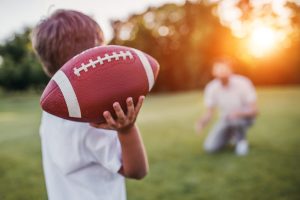
There has been a drop in child sports-related TBI visits to ERs, according to the CDC.
According to new research, fewer children are visiting the hospital for sports and recreation-related traumatic brain injuries. This is being largely driven by changes on the football field.
After a decade of rising injuries and the passage of state concussion laws, fewer children have been participating in youth football, contributing to the reduction in injuries. Going forward, the researchers are focusing on studying safer play techniques which could limit contact in football. They will also continue investigating head injuries in other sports, such as soccer and basketball, where the numbers didn’t change significantly.
The Centers for Disease Control and Prevention (CDC) released the research in a recent weekly report. Researchers analyzed data from the National Electronic Injury Surveillance System-All Injury Database.
What the Researchers Learned
The number of children visiting the hospital for sports and recreation-related traumatic brain injuries fell 32 percent from 2013 to 2018.
Researchers attribute this to changes in youth football programs across the U.S. Since 2010, participation has fallen 24 percent. Meanwhile, there was a 39 percent decline in football TBI visits from 2013 and 2018.
This was an encouraging sign. Previously, from 2001 to 2013, there had been a 200 percent increase in children suffering football-related traumatic brain injuries and ER visits. This was among children age 5-17.
While football-related TBI ER visits decreased, there was not significant movement in TBI ER visits for basketball and soccer, two other contact sports.
The CDC and researchers are also studying safer tackling techniques in football. Several sports leagues have also introduced new approaches which limit contact during practice. These include the National Federation of State High School Associations and its member states, along with two major youth football programs.
Concussions and Traumatic Brain Injuries
According to the CDC, a TBI is caused by a bump, blow or jolt to the head. It may be a penetrating head injury that disrupts the brain function. A concussion is a “mild” traumatic brain injury. A concussion may lead to brief changes in mental function and consciousness. Those injured may not realize they have a concussion and learning to recognize potential symptoms can save their life.
When it comes to your child, physicians, pediatricians, schools and caregivers have a responsibility to follow certain steps if they play sports and suffer a concussion or repeated concussions.
Massachusetts Concussion Protocols: Preventing Injuries and Caring for Students
CDC researchers noted that many children can recover from a sports and recreation-related TBI within 4 weeks. However, there is a continued focus on reducing long-term effects on a child’s brain development. Recovery must be carefully monitored.
Massachusetts and other states have passed laws to guide schools and sports leagues on how to prevent and treat injuries. Schools, leagues and coaches have a responsibility to follow the concussion protocols.
In Massachusetts, schools must provide students with training on how to recognize a concussion. Students must be removed from play if a concussion is suspected. They can only return with a doctor’s note. Read more about the Massachusetts concussion protocol on our website.
About Breakstone, White & Gluck – Boston Concussion Lawyers
Breakstone, White & Gluck and our Boston head injury lawyers represent clients after traumatic brain injuries and concussions caused by negligence. If you or a loved one has been injured, receive medical attention right away. Then, learn your legal rights.
For a free consultation with one of our lawyers, call 800-379-1244 or 617-723-7676. You can also use our contact form.
Breakstone, White & Gluck and Everett Police Make Donations for Bike Safety
Breakstone, White & Gluck’s Project KidSafe campaign recently supported the Everett Police Department’s work to protect children on bikes. In June, our lawyers donated roughly 100 bicycle helmets to Everett Police Chief Steve Mazzie and his officers. Attorney David W. White was there to deliver the helmets.
This is the fifth year we have partnered with Everett Police so we know their commitment to children and bike safety runs deep. But we were really inspired this year. Officers wasted no time. They began distributing the bicycle helmets right away and found many children who could benefit from our donation. Great job to Everett Police again!
- Everett Police Chief Steve Mazzie and Attorney David W. White of Breakstone, White & Gluck.
- Attorney David W. White delivers our Project KidSafe helmets to the Everett Police Department in late June.
- Courtesy: Everett Police Facebook.
- Courtesy: Everett Police Facebook.
- Courtesy: Everett Police Facebook.
About Breakstone, White & Gluck
At Breakstone, White & Gluck, our Boston personal injury lawyers specialize in representing those injured by the negligence or wrongdoing of others. Our attorneys are advocates for safe cycling and encourage all cyclists to wear bicycle helmets to protect against head injuries. To promote safe riding, Breakstone, White & Gluck has donated 30,000 bicycle helmets across Massachusetts through our Project KidSafe campaign.
Breakstone, White & Gluck has also been recognized as a Silver-Level Bicycle Friendly Business by the League of American Bicyclists.
Safety Tips for Using Children’s Scooters in Massachusetts
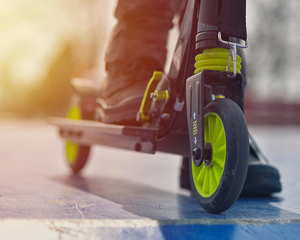
Safety tips for children’s scooters.
Children are eager to find fun activities this summer. In response, many parents have purchased new scooters online. As you open the box, remember to approach your child’s scooter as you would a bicycle. Make sure you have an age-appropriate and safe scooter model, along with a safety helmet.
Pre-Purchase: Read Product Materials
Before you buy, carefully read the product description. For children, plan to buy an age-appropriate non-motorized scooter. Check out online reviews and ask friends about their experiences purchasing scooters. Then, search for product recalls on the Consumer Product Safety Commission website. This is essential because at times, online vendors have been caught selling recalled products. Your child could be seriously injured on a recalled scooter.
Try to purchase a new scooter for your child. While bicycles can be passed down and refurbished, children usually wear their scooters out fairly well, especially the thin, fold-up models. If you do find a hand-me-down scooter, do a thorough inspection before giving it to your child. Locate the model number and check the recall database.
Post-Purchase: Inspect Your Delivery
When the scooter arrives, check that you have received the right model number and all the parts. Nothing should be broken or cracked. Register the scooter with the manufacturer to receive product recalls and other updates. Bicycles, skateboards and scooters all contain small parts and screws. Because your child probably rides daily, we suggest keeping the box. Scan the instructions and product support number so they are easily accessible.
Purchase a Helmet
As part of our Project KidSafe campaign, Breakstone, White & Gluck encourages children to wear bicycle helmets to protect against head injuries. Your child should also wear a helmet every time they ride a scooter. Take time to make sure the helmet is properly-fitted so your child is comfortable wearing it.
This is a suggestion and a requirement. A little background: Under Massachusetts law, children 16 and younger must wear helmets on bikes and scooters, as well as other riding toys.
The bicycle helmet law has been in place longer. In 1994, the state of Massachusetts approved a bicycle helmet law for children age 12 and younger. Then, in 2004, Massachusetts expanded the helmet law to children age 16 and younger on bikes, as well as scooters, skateboard, inline skates and manually-propelled wheeled vehicles. These laws are M.G.L. c. 85, § 11B and M.G.L. c. 85, § 11B1/2.
Some parents keep separate helmets for scooters and bikes. It is also acceptable for children to use one helmet, so long as it meets the federal safety standard for bicycles, properly fits and is in good condition. One reminder though: if your child wears one helmet, expect it to wear faster. Be prepared. Stowaway an extra helmet in your garage.
Look for helmets to meet this safety standard, U.S. Consumer Product Safety Commission (16 C.F.R. part 1203). These helmets are designed to protect against skull fractures and severe brain injuries sustained in bicycle accidents and falls. For more information, read the CPSC’s article, “Which Helmet for Which Activity?”
Driveway Safety
Many scooter accidents happen in or near driveways. Think about how you can protect your children while they ride. One idea is you can purchase driveway fencing. You can buy light-weight brightly colored fencing which retracts when you are done playing. Another strategy is you can park your cars between the children’s play area and the road.
Steer Clear of Large Vehicles
Even quiet streets see large vehicles, including SUVs, delivery trucks and trash vehicles. These vehicles can be deadly near young children on scooters. When a large vehicle appears, teach your child to move to a safe location (this may be your front lawn, your driveway, the sidewalk or the side of the road). Children are safest stepping off the scooter until the vehicle turns off the engine and parks or departs. Drivers backing up can be the most dangerous for children on scooters. Have your children wait inside while you back in or out of your driveway.
Bright Colored Clothing
Buy your child a brightly colored vest, shirt or jacket to wear when they ride near your home or around the neighborhood. Drivers don’t expect scooters – they move differently than bicycles or pedestrians – and you want them to really see your child. To reinforce the message, you can also wear brightly colored clothes as you walk along your child. Everyone is safer when they are more visible to traffic.
Park Scooters at Night
For safety, children should park their scooters at night. Drivers have a responsibility to look and operate with reasonable care. But the truth is more accidents occur at night and drivers are less likely to see bikes and scooters. Children’s scooters may have neon stickers, but these are hardly visible in night traffic.
Non-Motorized Scooters for Children
Say no to motorized scooters. The American Academy of Pediatrics (AAP) has advised against motorized scooters for children under 16. Powered scooters are associated with three times as many severe injuries to children in the U.S., according to a New York Times article on the study.
Scooter Injuries. In the 2008 study, children were more likely to suffer concussions and severe head injuries on motorized scooters. Leg injuries also increased.
More recently, in 2017, the CPSC reported non-motorized scooters were associated with the most injuries among two age groups, children 12 and younger and children under 15. That year, non-motorized scooters caused roughly 20 percent of injuries in both age groups and four deaths of children between 4 and 8 years old. All four children were riding scooters near their family’s home or driveway.
Defective Scooters. Do not assume your child was doing something wrong if the scooter starts to break or a piece falls loose. Manufacturers have had to recall defective scooters on many occasions. Report the incident to the manufacturer. Your report may confirm other reports and prompt them to issue a recall to prevent other scooter accidents and injuries. This is how the process works and it only works if consumers come forward with safety complaints.
Discard Scooters Carefully. If your child wore out their scooter, it’s not safe for use and you should disassemble it. This way, it will not injure another child.
About Breakstone, White & Gluck – Boston Personal Injury Lawyers
At Breakstone, White & Gluck, our Boston personal injury lawyers represent those who have been injured by negligence and recklessness. We are also committed to protecting against head injuries through our Project KidSafe campaign, donating 30,000 bicycle helmets to Massachusetts children since 2013.
We urge families to buy scooters carefully. Always buy a helmet. Always check for product recalls before you buy. Always carefully inspect the scooter when it arrives. Then, after you have taken these steps, you’re ready to enjoy the last few weeks of summer, watching your child ride their new scooter safely.
If you or your child are injured by negligence, please take time to learn your legal rights. For a free legal consultation, contact Breakstone, White & Gluck at 800-379-1244 or 617-723-7676 or use our contact form.
Planning a Safe Summer Road Trip in Massachusetts
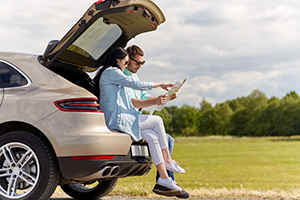
Planning is the key to a safe summer road trip.
By now, many of us are ready for a summer road trip. Maybe you cannot reach your first-choice destination due to COVID-19 travel restrictions. Or maybe you are just taking it slow with a day-trip. Whatever your plan, we hope you can fit in some fun while practicing safety.
First, make sure your vehicle is ready. Check your vehicle’s systems. By taking some time now, you are less likely to breakdown or cause a car accident resulting in injury, motor vehicle damage and stress.
Check for Auto Recalls
Find your Vehicle Identification Number (VIN). Then, check the federal auto recall website, managed by the National Highway Traffic Safety Administration (NHTSA). You can also sign up for email alerts from this page.
Each year, there are millions of auto recalls. Drivers are not always properly informed by manufacturers. Without any warning, drivers keep operating vehicles, increasing the risk for a malfunction. Be pro-active about checking on auto recalls. The thorough database contains recalls up to 15 years back. One caveat is the database does not identify vehicles which were recalled but have now been repaired.
Collect Your Owner’s Manual
Make sure you have your owner’s manual in your glove compartment, along with your motor vehicle registration and auto insurance information.
Have Your Car Serviced
Before you travel:
- Check your vehicle maintenance records
- Schedule a tune-up, oil change or battery check as needed
- Check when your car last had a tire rotation
- Make sure your air conditioning system is properly working as well
If you have any questions, schedule an appointment with a mechanic or garage.
Roadside Assistance
Purchase an auto club membership before you travel. Due to COVID-19, you may not be traveling as far as you wanted this year. You may just be day-tripping to Cape Cod. Still, anytime you travel on the highway, an auto membership is a valuable tool.
Stocking Up
The NHTSA advises drivers to stock up on essential supplies before you travel.
- Cell phone and charger
- Nonperishable food, drinking water and medications
- Paper or printed maps (in case you lose cell phone coverage)
- First aid kit
- Flashlights
- Flares and a white flag
- Jumper cables
- Tire pressure gauge
- Jack
- Work gloves and extra clothing
- Extra windshield washer fluid
Checking Inside the Car and Mirrors
Remember to check your seatbelts and car seats to make sure they are properly functioning. If you have a young child, they may have outgrown their car seat over the past few months. Replace car seats right away.
Check your mirrors. Your rearview and sideview mirrors should be securely in place to help you view your surroundings. If you have a back-up camera, make sure it works. If you don’t have a back-up camera and you have time, consider purchasing an add-on camera. Consumer Reports offers tips: “How to Add a Back-up Camera to Your Car.”
Travel Planning
Before you travel, check the weather and road conditions along your route. Familiarize yourself with the directions before you go. You may use a global positioning system. But when visiting new places, also consider printing travel maps or writing down notes, such as toll locations and rest stops. Write down key phone numbers, such as for hotels. Gather this in a folder or binder.
Share your travel route with a loved one or friend. Keep an emergency contact’s information available, such as in your wallet or the password lock screen of your phone.
If you are traveling within Massachusetts, you can check traffic conditions on Mass511.com. Cape Cod travelers can check the Cape Cod Commission’s Real-Time Traffic Updates. This contains information about Cape Cod car accidents, road closures and construction projects.
Hands Free Cell Phone Systems
On April 1, 2020, the Massachusetts hands-free driving law took effect. Now, all six New England states ban texting while driving and handheld cell phone use.
What you can do: If you want to use your cell phone, purchase Bluetooth and hands-free driving equipment before you travel. If you cannot GPS through Bluetooth or an in-vehicle system, you can purchase a cell phone mount for your dashboard.
Cell phone-related car accidents often ruin vacations while causing serious injuries. Our best advice is to focus on the road and set your cell phone aside. Enjoy the time with your family or friends. Check your messages at the end of the day.
Children and Heatstroke
Children can suffer heatstroke when left alone in a vehicle. A child’s body temperature rises 3-5 times faster than an adult’s and injuries can happen quickly, according to the NHTSA.
Come up with a family plan for traveling this summer. Never leave your children alone in your car in parking lots, when you visit family and friends or any time you make quick stops. Your car is a powerful piece of machinery. Everyone in and out of the car together. Or if you have two adults, designate one your driver, who stays in your vehicle with your children and the air conditioning. Let the passenger get out and do your errands.
Free Legal Consultation – Boston Car Crash Lawyers
Breakstone, White & Gluck and our Boston car accident attorneys fight for the rights of those injured by negligence and wrongdoing in Massachusetts. Our attorneys represent those injured across Massachusetts, from Boston and Cambridge to the North Shore and Quincy and the South Shore and Cape Cod.
If you have been injured in a motor vehicle accident, learn your legal rights. Consult Breakstone, White & Gluck at 800-379-1244 or 617-723-7676 or use our contact form.
Backover Accidents Endanger Children
 It is frightening to watch a driver back up toward a child at play. At least 50 children are victims of backover accidents each week, according to KidsandCars.org. More than 70 percent of backover accidents involve young children and a parent or a relative. Many of these car accidents occur right in home driveways.
It is frightening to watch a driver back up toward a child at play. At least 50 children are victims of backover accidents each week, according to KidsandCars.org. More than 70 percent of backover accidents involve young children and a parent or a relative. Many of these car accidents occur right in home driveways.
As traumatic as backover accidents are, many injuries are preventable. Drivers can recognize the safety risk and make use of technology. Families can communicate and plan. Involve friends and family who visit and park at your home in this conversation. Before they arrive, suggest a safe parking space.
As a Massachusetts driver, you can help prevent backover accidents through a combination of steps. You can use a back-up camera. Stay aware of your blind zone. Near children, the most effective prevention may be getting out and walking around your vehicle. Make sure you have a clear path of travel and if you don’t, be patient. Stay where you are for an extra few minutes until the children have gone back inside.
For Families:
Comings and Goings. Start by keeping your family together when someone arrives and departs. Keep children inside and let them wave to the driver from the window. If children are outside, an adult should be outside supervising them. Gather together on the front steps or a safe place. Hold on basketball, bikes or riding toys until the person leaves. It’s hard for a young child to resist chasing a ball.
Driveway Barriers. Parents can keep traffic cones in the shed. Put the cones out in your driveway when you are concerned or to block delivery drivers from pulling. You can also look into portable neon driveway fencing products.
For Drivers:
Walk Around the Vehicle. Even if drivers have a back-up camera, walk around your vehicle. Check underneath your vehicle and observe if a child or anyone is nearby or may move into your path of travel (such as a child riding a bike or someone pushing a shopping cart).
Park Consistently. If you are a parent or live near children, park your vehicle in the same place in your driveway or garage each day. Be consistent with your approach. Whether you pull in or back into your driveway or garage, make sure children are in a safe place. If you are a parent, keep children in the backseat if you back in. Come to a complete stop, turn and check on your children in the backseat, then get out of the vehicle together.
Large Vehicles. Trucks, SUVs, RVs and vans are more likely to cause backover crashes, according to NHTSA. The taller the vehicle, the greater the driver’s blind zone.
Blind Zone. The blind zone is the area behind a vehicle which a driver can’t see. Whatever vehicle you drive, learn about your blind zone. Consumer Reports found small sedans usually have a 12 foot blind zone for the average driver. Midsized SUVs have an 18-foot blind zone, while large SUVs have 19 feet. Pick-up trucks have the largest blind zone among the passenger vehicles – 24 feet.
Back-up Cameras. As of May 2018, all new passenger cars, trucks, vans and other vehicles weighing less than 10,000 pounds have to be outfitted with rearview monitoring technology, according to Edmunds.com. If you are driving an older vehicle, you can install a back-up camera on your own – and it is an important tool which can save lives. Read “How to Add a Backup Camera to Your Car,” by Consumer Reports.
Bicycles and Pedestrians. Backover accidents can also injure adults, including cyclists and pedestrians. Look all around your vehicle before you pull out of a parking space. Be aware of different types of activities and movements in downtown and other business areas. When possible, avoid parking near crosswalks.
Parking Lot Crashes. In parking lots, pull into parking spaces whenever possible. Keep watch of pedestrians and shoppers when you pull out or back out of spaces. Set aside cell phones and do not drive when you are overfatigued.
Another note is right now, many Massachusetts grocery stores, retailers and restaurants are offering curbside pick-up services. While convenient, remember not every business is experienced with this. Drive into parking lots slowly and watch for curbside pick-up signs. If there are no signs, find a parking space and call the store. Always watch for pedestrians, who are also just figuring this all out.
Boston Car Accident Lawyers – Free Legal Consultation
At Breakstone, White & Gluck, our Boston car accident attorneys specialize in representing victims of car accidents and pedestrian accidents. We represent those injured across Massachusetts, from Boston and Cambridge to the North Shore to Quincy and the South Shore and Cape Cod.
For a free legal consultation, contact our attorneys at 800-379-1244 or 617-723-7676 or use our contact form.
Breakstone, White & Gluck Gives Free Helmets to Lowell Students at Bike Giveaway
- Photo courtesy: The Bike Connector – The Bike Connector gave away 20 refurbished bikes to Lowell students and their families on July 2nd. Breakstone, White & Gluck gave each cyclist a free bicycle helmet from our Project KidSafe campaign.
- Photo courtesy: The Bike Connector – The Bike Connector gave away 20 refurbished bikes to Lowell students and their families on July 2nd. Breakstone, White & Gluck gave each cyclist a free bicycle helmet from our Project KidSafe campaign.
- Photo courtesy: The Bike Connector – The Bike Connector gave away 20 refurbished bikes to Lowell students and their families on July 2nd. Breakstone, White & Gluck gave each cyclist a free bicycle helmet from our Project KidSafe campaign.
- Photo courtesy: The Bike Connector – The Bike Connector gave away 20 refurbished bikes to Lowell students and their families on July 2nd. Breakstone, White & Gluck gave each cyclist a free bicycle helmet from our Project KidSafe campaign.
- Photo courtesy: The Bike Connector – The Bike Connector gave away 20 refurbished bikes to Lowell students and their families on July 2nd. Breakstone, White & Gluck gave each cyclist a free bicycle helmet from our Project KidSafe campaign.
- Photo courtesy: The Bike Connector – The Bike Connector gave away 20 refurbished bikes to Lowell students and their families on July 2nd. Breakstone, White & Gluck gave each cyclist a free bicycle helmet from our Project KidSafe campaign.
Breakstone, White & Gluck recently teamed up with a new partner, The Bike Connector in Lowell, on our Project KidSafe campaign. About 18 months ago, a Lowell high school teacher and Wade Rubinstein, a local cyclist and businessman, came up with the idea to introduce at-risk high school students to bicycles, also teaching them valuable mechanical and life skills. The Bicycle Academy was born, offering earn-a-bike and DIY bike workshops right at Lowell High School Career Academy. This started to open new doors for students who needed reliable transportation to school or wanted to try cycling.
The Bicycle Academy has now grown into The Bike Connector, a not for profit corporation which makes bicycling safe and accessible for Lowell residents. To date, The Bike Connector has given away 100 refurbished bicycles. Despite the challenges of 2020, The Bike Connector partnered with Lowell Career Academy on July 2nd and gave away 20 refurbished bikes to high school students and families. As a COVID-19 precaution, the event was planned a little differently. Rather than a gathering, students scheduled times to pick out bikes and be fitted for bikes.
The Bike Connector plans to distribute 100+ bikes this summer. Breakstone, White & Gluck is proud to support The Bike Connector’s work, giving each cyclist who receives a refurbished bicycle a free helmet from our Project KidSafe campaign.
About Breakstone, White & Gluck – Boston Personal Injury Lawyers
Breakstone, White & Gluck is a top-rated Boston personal injury law firm. Our attorneys have been widely recognized their results, including by Top 100 New England Super Lawyers, Top 100 Massachusetts Super Lawyers and Best Lawyers.
We are committed to supporting bicycle safety in Massachusetts. For more than 20 years, we have supported bicycle clubs in the Boston area and we began our Project KidSafe campaign in 2013, with a goal of encouraging children to wear helmets to protect against head injuries. Today, we are proud to have worked with more than 50 community partners on our Project KidSafe campaign and to be recognized by the League of American Bicyclists as a Silver Level Bicycle Friendly Business.
After Fatal Dog Attacks, a Tragic Warning for Massachusetts Families

Dog owners made horrific decisions which killed young children in 2019. In Massachusetts, a 14-year-old boy was mauled to death by at least four dogs in Dighton. Then, in Michigan, two young children lost their lives to separate pit bull attacks, just months apart.
No one wants to think about the potential dangers of dogs. This is because many people own a dog or call themselves dog lovers. But the reality is dogs can be a public health risk when left unsupervised or when owners make poor decisions. Or when they interact too closely with children. Now, during the summer months, is the time to consider your family’s safety.
Children face the greatest risk of injury and suffer more than 50 percent of all dog bites, according to the Children’s Hospital of Pittsburgh.
Dog bites and attacks caused severe injuries and deaths across the United States and here in Massachusetts last year. In May 2019, a 14-year-old boy was killed in a dog bite attack in Dighton. He was found laying dead at a property where he was caring for dogs without supervision. There were 4 dogs in the area where his body was found and 7 other dogs on the property, according to a NBC Boston report. The dogs were reportedly not licensed in Dighton.
The boy’s grandmother had dropped him off on the large property to tend to the dogs, as she had for several months, while the dogs’ owner was away in Boston, according to the Sun Chronicle newspaper. The grandmother waited in the car and grew concerned when the boy did not return. A neighbor found the boy dead and police were called. The Bristol County District Attorney’s office investigated but declined to criminally charge the dogs’ owner.
Then, the state of Michigan lost two young children within a few months. In August 2019, three pit bulls savagely attacked a 9-year-old girl in Detroit as she rode her bike in an alley near her home, according to a local news report. The girl died from multiple injuries, despite a neighbor’s attempt to help, by shooting and killing one of the dogs. The owner of the dogs was arrested, ultimately charged with second-degree murder.
Prosecutors alleged the owner knew the dogs “were dangerous, loose and unsecured” in the backyard of his home, according to the news coverage. He allegedly went to a nearby store and the dogs broke free from the yard while he was away. The initial investigation found the fencing around the home was damaged and the garage door had also been left open.
In October, another child was attacked just a few miles away in Hazel Park, Michigan. This time, the 4-year-old boy was killed by a pit bull right in his own home. His family had been pet sitting for a friend.
“A kind gesture to help a friend in a time of need, for a dog that was said to have never shown aggressive behaviors has turned into a horrifying loss for our family,” the family said in a statement.
The attack only ended when police shot the dog with a taser gun and it fled. The boy was later pronounced dead at a local hospital. The boy’s mother had fought to save her son, stabbing the dog with a knife. She was later transported to a local hospital with non-life threatening injuries.
A Dog Owner’s Legal Responsibilities in Massachusetts
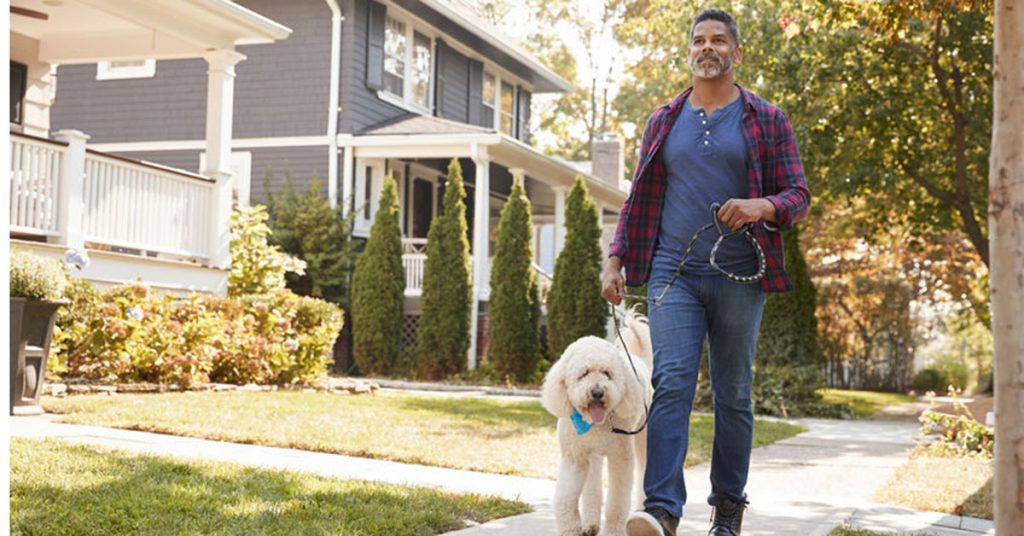
Always use a dog leash when you walk through your neighborhood.
To dog owners, we urge you to tend to your responsibilities. Follow your community’s local leash laws and registration requirements.
Restrain and supervise your dog at all times. In Massachusetts, the owner or keeper of a dog can be held financially responsible when their animal attacks someone. Under Massachusetts law, the injured person may seek compensation through your Massachusetts homeowner’s insurance policy. There is strict liability when a dog causes injuries, scarring or wrongful death. One does not have to prove the dog had a history of being dangerous or vicious.
Adults have a responsibility not to trespass or torment a dog at the time of the attack. But dog owners can be held liable when young children step onto their property without invitation, then are attacked. This is a very important point for dog owners to understand.
Homeowners can prevent these injuries by inspecting their home and property. Consider the age of your neighbors’ children. In most cases, the best investment you can make is strong fencing which keeps your dog contained and stops children before they grow interested in watching your dog.
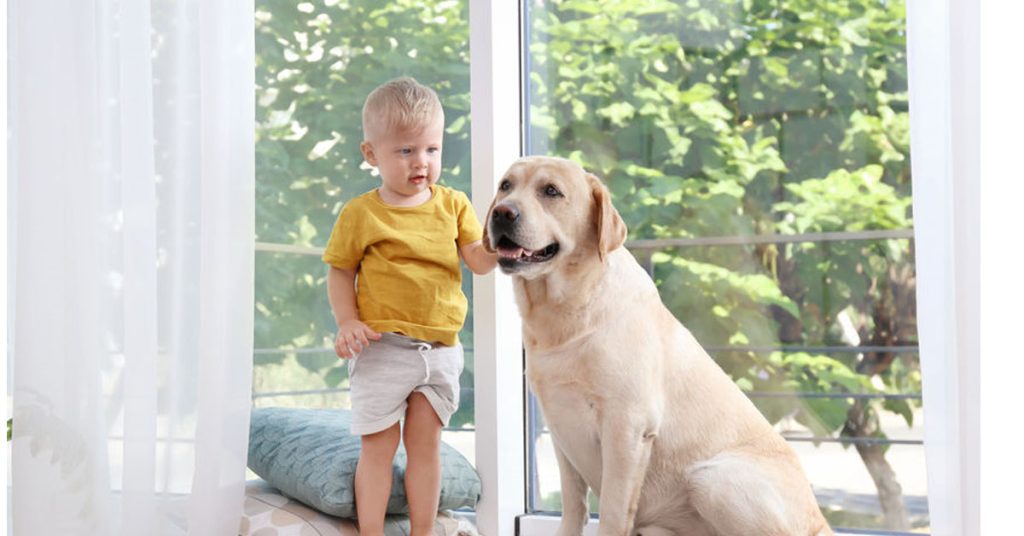
When you visit friends or family, keep young children away from their dog. You will have plenty of time to introduce your child to dogs later, as they grow older.
To parents and neighbors, never underestimate the risk of dogs. Dog bites and attacks are more common than most people realize, even when you and your children know the dog. In fact, 77 percent of dog bites cause injury to their owners and children, a relative or family friends, according to the Children’s Hospital of Pittsburgh.
Dogs may be well behaved. Owners can feed and exercise them regularly. Yet they can still be unpredictable or become stressed and attack without warning. They are not a reliable combination with young children, no matter how dog-friendly their owner says they are.
We encourage you to exercise caution around dogs. If you are a parent, keep your children away from dogs. You have the choice when you visit friends or family members who own dogs. These are social visits and letting your child approach a dog while you talk is dangerous, even if they are with another person or older child. You want to introduce your child to dogs when they are older, taking time to consult your children’s pediatrician and school. You want to be right there with your child, not watching them from across a yard.
Watch Your Neighborhood
The risk for dog bites typically rises in the summer, with the warm weather and the start of school vacation. This year, Covid-19 has changed everything in Massachusetts. Your neighbors may be spending even more time at home. You may see their dogs out more, sometimes without supervision. You may also see some new dogs.
Call your local animal control officer if you are concerned about an unsupervised dog. Your neighbors have a responsibility to follow leash laws and these are in place to prevent injuries. Another reason is some of these dogs may also be abandoned, neglected or starved. They need special attention before they contract and spread rabies, or attack.
Facts About Dog Bite Injuries
- From 2005 to 2018, 471 Americans were killed by dog bites, according to DogBite.org, a victim’s group.
- Pit bulls caused more than 65 percent of fatal dog bites and attacks, according to the group.
- Children age 5 to 9 are the most frequent victims of dog bites and attacks, according to a WBUR article.
- Dogs are most likely to bite children in the face, neck and head, the Children’s Hospital of Pittsburg reports.
Seeking Medical Treatment After Dog Bites and Attacks
Most dog bites and attacks are serious. Call 911 and wait for emergency medical services. Even if you or your child have only suffered a minor wound, we encourage you to still call your pediatrician or doctor. Ask to be treated right away. This is critical because not all dogs are vaccinated.
Free Legal Consultation – Boston Dog Bite Lawyers
Breakstone, White & Gluck has more than 100 years combined experience representing victims of dog bites and attacks in Boston and across Massachusetts. If you or your child has been injured, you may have the right to pursue financial compensation for your recovery. You may be entitled to seek damages for medical expenses, pain and suffering and other financial losses. This compensation can also pay for counseling for emotional distress.
Learn your legal rights. Contact our Massachusetts dog bite attorneys for a free legal consultation at 800-379-1244 or 617-723-7676.


